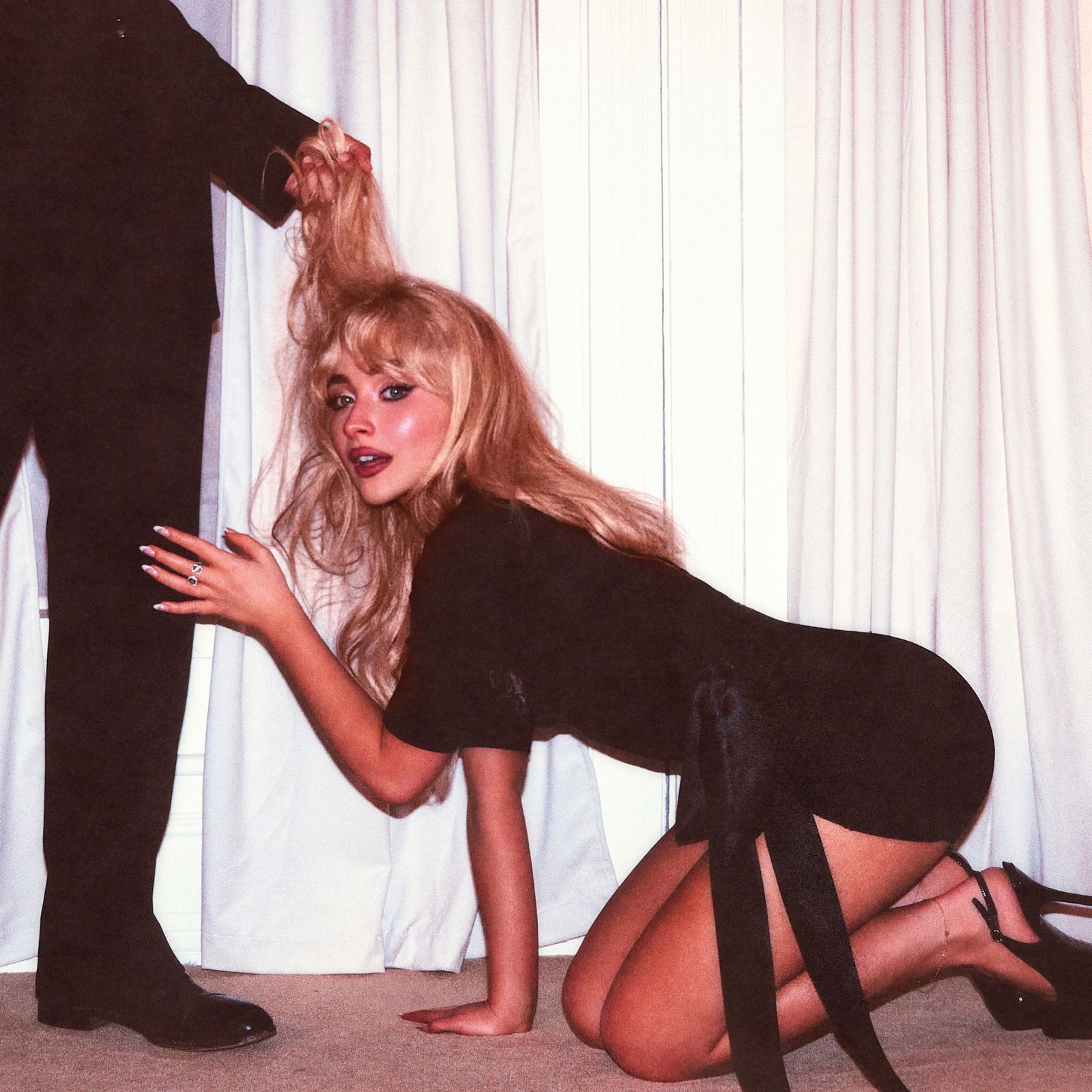After years toiling in the post-Disney-star pop ecosystem, Sabrina Carpenter finally broke through last year with Short n’ Sweet, her sixth album, which rode to pop ubiquity (and strong Grammys recognition) off the back of “Espresso,” “Please Please Please” and “Taste” its three catchy, sharply written megahit singles. Since then, she’s staged a gigantic global arena tour and, somehow, found time to record a follow-up: Man’s Best Friend, which once again finds her working with Jack Antonoff, John Ryan, and the songwriter Amy Allen.
Like its predecessor, Man’s Best Friend positions Carpenter as a kind of TikTok-era Mae West: a sex symbol who’s in on the joke, and who can flick between sweet and savage in milliseconds. This time around, there’s a little more sadness and frustration in the mix—Short n’ Sweet might have made frequent reference to the irresistible nature of Carpenter, but this record pokes some holes in that self-confidence as she sings about men who are disinterested, rude, or just plain annoying. Here are five key takeaways.
Provocation with Purpose
Man’s Best Friend was already a media sensation before it even came out, thanks to its vaguely provocative cover—Carpenter, on all fours, with a man in a suit grabbing her hair—and its title, which some fans assumed was being presented literally and uncritically. In truth, the presentation of the album makes a lot of sense when you listen to it: Many of these songs, like “My Man on Willpower” and “We Almost Broke Up Again,” center on Carpenter’s inability to cut herself off from men who trifle with her emotions or make her feel undervalued. (On her being treated, in other words, like a dog.)
Euro Swag
One of the songs on Sabrina Carpenter’s pre-show playlist is ABBA’s “If It Wasn’t For The Nights,” an underrated and relatively obscure from 1979’s Voulez-Vous, written by Björn Ulvaeus about how his own sense of workaholism was the only thing getting him through his divorce from Agnetha Faltskog. Carpenter’s ABBA standom comes into full bloom on Man’s Best Friend, which draws distinct influence from the lush white European pop of the ’70s and ’80s. There are shades of “I’ve Been Waiting For You” on “We Almost Broke Up Again Last Night,” while “Nobody’s Son” plays like a love letter to the Swedish pop industry, somehow nodding to “One of Us,” Ace of Base’s “The Sign” and Jens Lekman’s “The Opposite of Hallelujah” in equal measure.
Then there’s “Goodbye,” the album’s triumphantly acerbic closer, which channels “Voulez-Vous” and the hearty chug of “Take a Chance on Me.” If Carpenter wants to stay in this lane for a while, there’s still plenty of weird ABBA music from which to mine inspiration: personally, I’d love to hear her take on “Visitors”-esque paranoid coldwave.
Real Music Wins
If Man’s Best Friend sounds different than other Carpenter records, that might be because it’s largely played with live instruments. There are synths and programmed drums on songs like “When Did You Get So Hot?” and “House Tour,” but for the most part, “Manchild”—a country stomper that sounds a little like the members of a sorority house trying to play Fleetwood Mac’s “The Ledge” from memory—wasn’t a fakeout. Jack Antonoff, one of Carpenter’s main collaborators here, brought in the members of Bleachers to play on nearly every song; his regular collaborator, Bobby Hawk, contributes strings, while lap steel legend Greg Leisz, a presence on everything from Lucinda Williams’ Car Wheels On A Gravel Road to John Mayer’s Sob Rock, plays guitar and phin – a kind of lute! – on “Manchild”. The result of all those extra hands is an album that sounds totally distinct from Carpenter’s other albums, and most other pop records released this year.
Playing it Coy
Rubberneckers hoping that Man’s Best Friend was going to be a salacious tell-all about the dissolution of Carpenter’s relationship with the actor Barry Keoghan will likely be disappointed: there are few lyrics on the album specific enough to ascribe to any one person, although I admire the desperation of the Genius commenter who has suggested that the line “the one that rhymes with ‘villain’”, on “Go-Go Juice” could be about him. (This would require a gross mispronunciation of either Keoghan or villain.) Even so, there’s plenty of brokenhearted insight to be found on Man’s Best Friend, from the adage that “A girl who knows her liquor is a girl who’s been dumped” to the iconic lyrics of “We Almost Broke Up Again”: “You say we’re driftin’ apart/I said ‘Yeah, I fucking know’”.
Cheeky One-Liners
“Just thought that he eventually would cave in, rеach out/But no siree, he discovered sеlf-control” (“Nobody’s Son”)
“Abstinence is just a state of mind” (“Never Getting Laid”)
“Now I’m at the prospect convention” (“When Did You Get Hot?”)
“Got a soft spot for a bev’ and a boy that’s fruity” (“Go-Go Juice”)
“Yeah, I spent a little fortune on the waxed floors/We can be a little reckless ’cause it’s insured” (“House Tour”)
